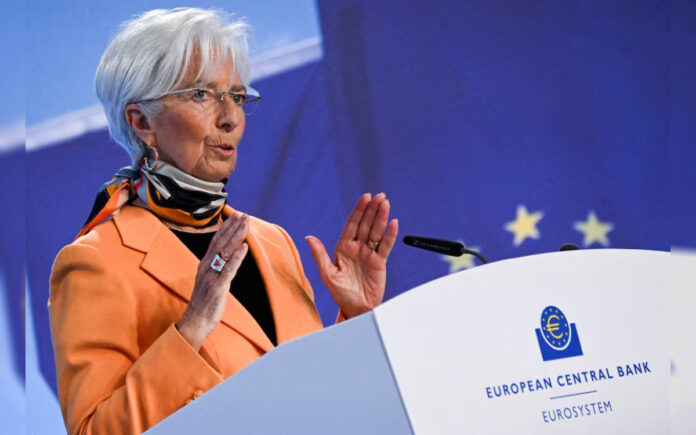Frankfurt: European Central Bank (ECB) President Christine Lagarde stated that the euro has the potential to emerge as a credible alternative to the U.S. dollar—provided that European governments take decisive steps to reinforce the bloc’s financial and security framework.
Speaking at a lecture in Berlin on Monday, Lagarde emphasized that while global investors have grown increasingly cautious of the dollar due to volatile U.S. economic policy, they have yet to turn decisively to the euro, often choosing gold instead as a safer haven. The hesitation stems from the eurozone’s incomplete financial architecture and a longstanding reluctance among EU governments to pursue deeper economic integration.
“The ongoing changes create the opening for a ‘global euro moment,'” Lagarde said. “The euro will not gain influence by default – it will have to earn it.”
Despite being the world’s second most-used currency, the euro’s share in international reserves has hovered around 20% for years, significantly behind the dollar’s 58% share—a figure that has gradually declined but still dwarfs its European counterpart.
To change this dynamic, Lagarde laid out a comprehensive vision for elevating the euro’s role on the global stage. She called for a deeper and more liquid capital market, a reinforced legal foundation for the currency union, and the establishment of security capabilities to underpin Europe’s commitment to open trade.
“This is because investors – and especially official investors – also seek geopolitical assurance in another form: they invest in the assets of regions that are reliable security partners and can honour alliances with hard power,” Lagarde said at the Hertie School lecture.
Lagarde further argued that Europe should make the euro the preferred currency for invoicing international trade. This ambition could be advanced by negotiating new trade agreements, enhancing cross-border payments, and arranging liquidity facilities through the ECB.
Also Read | Liverpool Parade Turns Chaotic as Car Rams Crowd, 27 Injured
However, she warned that internal reform is critical. Lagarde highlighted that the eurozone’s capital markets remain fragmented and inefficient, lacking a truly liquid and widely accessible safe asset that global investors seek.
“Economic logic tells us that public goods need to be jointly financed. And this joint financing could provide the basis for Europe to gradually increase its supply of safe assets,” she explained.
Also Read | China Accuses Taiwan Government of Backing Cyberattack on Tech Firm
Nonetheless, joint borrowing—a concept that would enable the issuance of euro-wide safe assets—remains politically sensitive. Countries like Germany have consistently resisted such measures, fearing they could be left bearing the financial burden of less fiscally disciplined member states.
If these structural hurdles can be overcome, Lagarde suggested, the eurozone could reap significant rewards. Enhanced investor confidence could lower borrowing costs for domestic actors, shield the bloc from currency volatility, and provide greater resilience against external sanctions.



